Vietnamese still favours the US despite Afghanistan spectre
Many observers have drawn parallels between the US's chaotic withdrawal from Afghanistan and memories of the "fall of Saigon". But Vietnamese reactions to US Vice President Kamala Harris's recent visit there shows continued favourable sentiments towards the US.
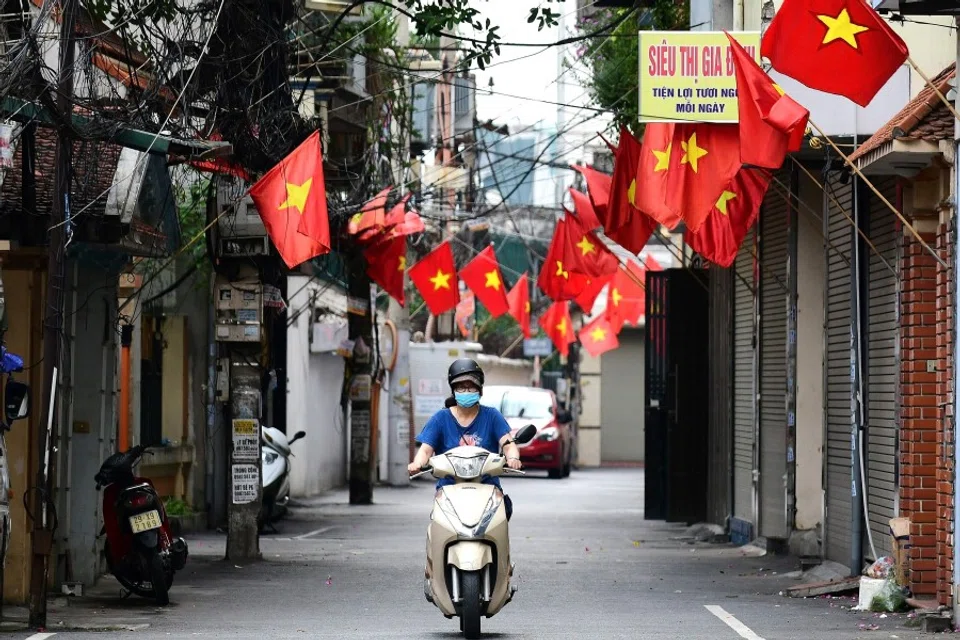
On the night of 26 August, soon after US Vice President Kamala Harris departed Vietnam at the end of her seven-day tour to Southeast Asia, the Chinese embassy in Hanoi posted a note on its Facebook page stating its official stance on the visit.
In a scathing response to Harris's remarks that called out Beijing's "bullying and excessive claims" in the South China Sea, the Chinese embassy's message was forthright: "Countries in the region will not jump into an anti-China alliance led by the US."
Pointing the finger at the chaotic US withdrawal from Afghanistan, the Chinese embassy alluded to the collapse of the US-backed Southern Vietnam regime in 1975 and pointedly asked whether the US was "awakening" the spectre of the fall of Saigon by sending American politicians to Vietnam to drive a wedge between China and its neighbouring countries. The embassy pointed out that Vietnam was still suffering from the wounds of the Vietnam War, in which more than 15 million tons of bombs and mines were dropped and 80 million litres of the toxic defoliant known as Agent Orange were sprayed over large swathes of southern Vietnam. The note concluded by warning Washington not to overestimate its dominance.
Of nearly 5,000 comments in response to the post, a majority of Internet users dismissed the message, urging China to first look in the mirror before calling another country "bully".
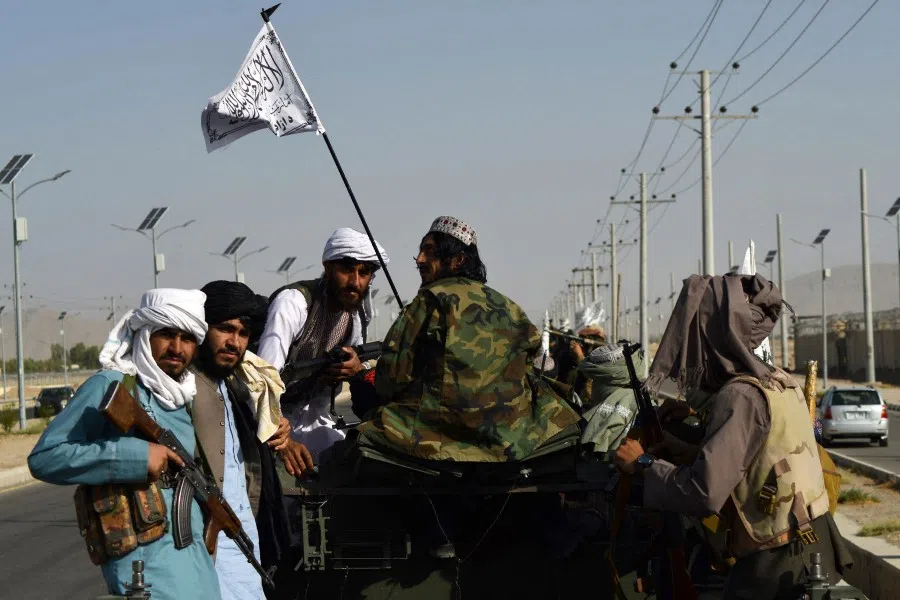
The Chinese embassy's Facebook post was read as a stern warning against countries - Vietnam included - that look to bank on the US as a crucial bulwark against China. Written only in Vietnamese and Chinese, it was clearly targeted at the Vietnamese public.
But in a country where China's anti-America narratives have proved a hard sell to Vietnamese social media users, the note was yet again subject to pushback, ridicule and lampoon online. Of nearly 5,000 comments in response to the post, a majority of Internet users dismissed the message, urging China to first look in the mirror before calling another country "bully".
The blowback is an indicator of how the US's Afghanistan debacle has apparently failed to erode Vietnamese netizens' positive response to Harris's visit to Vietnam, suggesting that the desire for closer relations with the US among a significant constituency in Vietnam has become increasingly palpable.
But such positive reactions are likely the manifestation of the pro-America sentiment that has long been gestating in Vietnam's younger generation.
In fact, an analysis of public sentiments online showed that Harris's visit generated overall positive reactions from both state-run news outlets and social media (Figure 1). Even though much has been made of the parallels between the US's chaotic withdrawal from Afghanistan and the "fall of Saigon", this issue was surprisingly barely mentioned in social media discussions, much less in mainstream media during the visit.
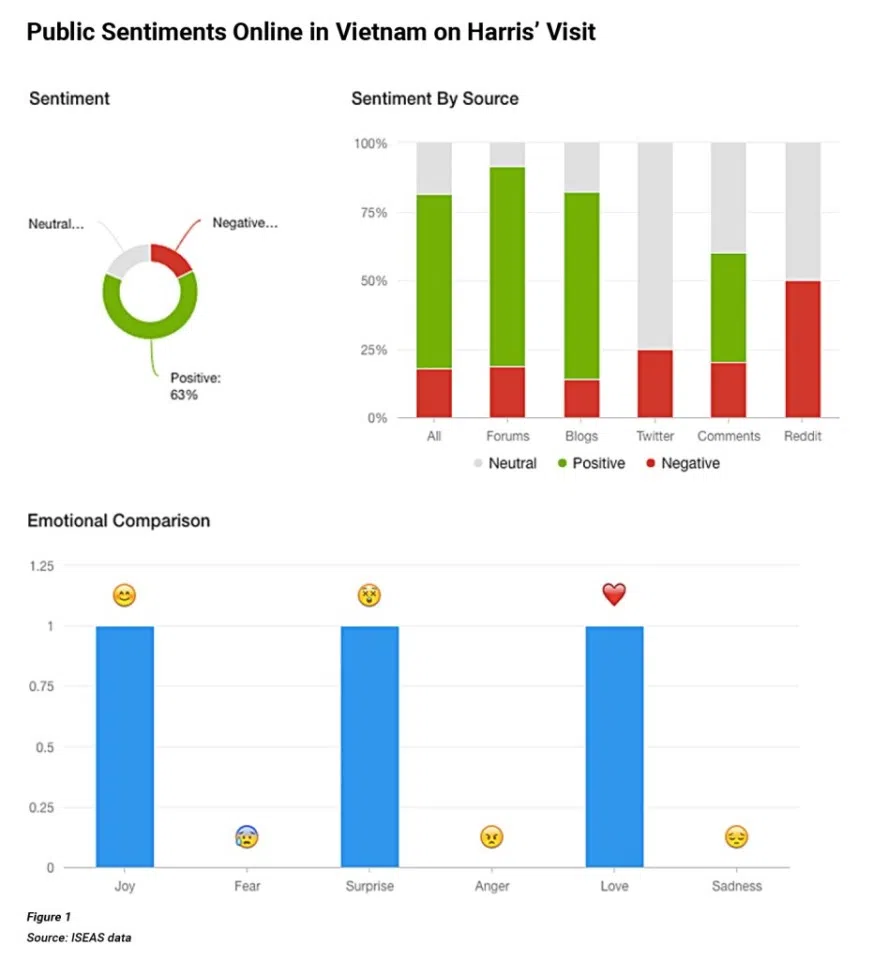
A closer look at a total of 30 Facebook posts by the US embassy and consulate dedicated to Harris's tour in Vietnam reinforced the same trends noted above. (Figure 2).
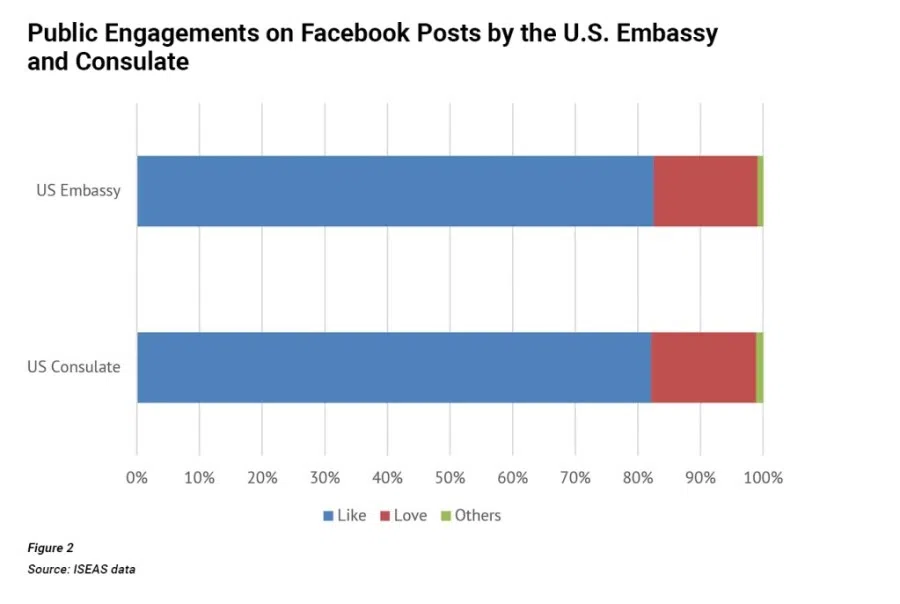
The most engaged content centred on the vice president's arrival, the donation of one million Pfizer-BioNTech vaccine doses, and the signing ceremony of a 99-year lease for the US$1.2-billion American embassy in Hanoi.
Why the public was gung-ho about the US vaccine donation is not hard to explain. In the face of surging Covid-19 case numbers and abysmal vaccination rates, the Vietnamese have still overwhelmingly preferred American vaccines to the Chinese shots.
The plan to build a new American embassy in Hanoi generated a lot of positive coverage in state-controlled media even after Harris left Vietnam. Public reactions were generally welcoming, as seen in the comment sections of those articles. To many readers, that move crystalises the strategic significance the US places on Vietnam.
Granted, public sentiments online could prove protean, fickle and even prone to manipulation. But such positive reactions are likely the manifestation of the pro-America sentiment that has long been gestating in Vietnam's younger generation.
Two-thirds of the country's nearly 100 million were born after the Vietnam War; Vietnamese youth account for a quarter of the total population. It is the sentiment of this demographic that has been captured in various polls that reflect strongly favourable Vietnamese sentiments towards the US.
...there has been no discordance between Vietnamese youth and the older generation when it comes to Vietnam's giant northern neighbour. To them, the Chinese threats are always there.
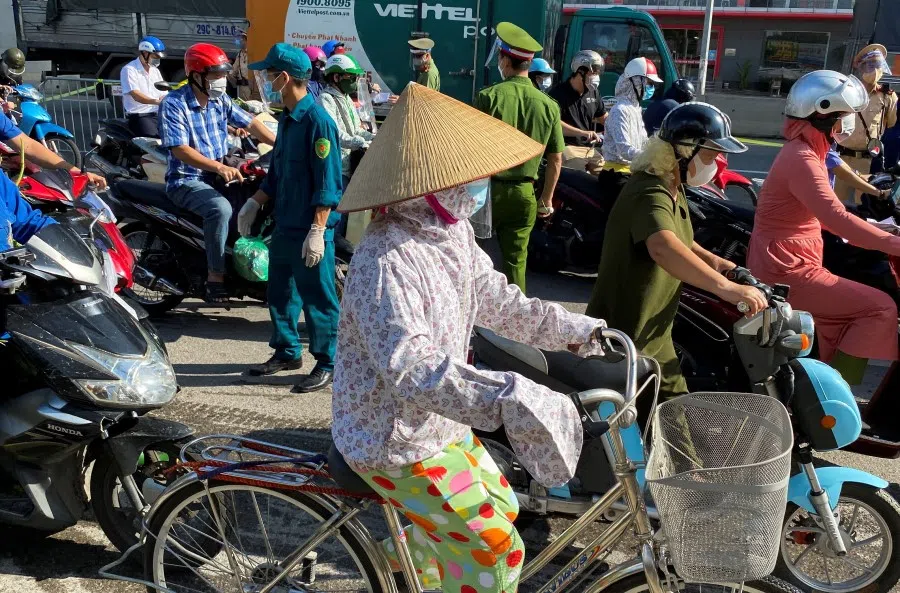
Nowhere in Southeast Asia has the "America is back" message resonated more strongly than in Vietnam. In the State of Southeast Asia 2021 survey, published in February by Singapore's ISEAS - Yusof Ishak Institute, Vietnamese are most leery of China's growing strategic clout and most supportive of American influence in Southeast Asia.
Meanwhile, Vietnamese megacities such as Hanoi or Ho Chi Minh are awash with Americano-philia: A get-together at Starbucks or an overnight queue just to get the latest iPhone version is considered emblems of chic Americanism and a tech-savvy lifestyle.
Outside observers have always struggled to understand the lack of bitterness towards the US among young Vietnamese, even though their country had suffered a brutal war that cost more than three million Vietnamese lives.
But for a generation that has known nothing but peace, US soft power diplomacy and the cultural appeal of what the US embodies appear to have triumphed. Meanwhile, there has been no discordance between Vietnamese youth and the older generation when it comes to Vietnam's giant northern neighbour. To them, the Chinese threats are always there.
This article was first published by ISEAS - Yusof Ishak Institute as a Fulcrum commentary.



![[Video] George Yeo: America’s deep pain — and why China won’t colonise](https://cassette.sphdigital.com.sg/image/thinkchina/15083e45d96c12390bdea6af2daf19fd9fcd875aa44a0f92796f34e3dad561cc)
![[Big read] When the Arctic opens, what happens to Singapore?](https://cassette.sphdigital.com.sg/image/thinkchina/da65edebca34645c711c55e83e9877109b3c53847ebb1305573974651df1d13a)
